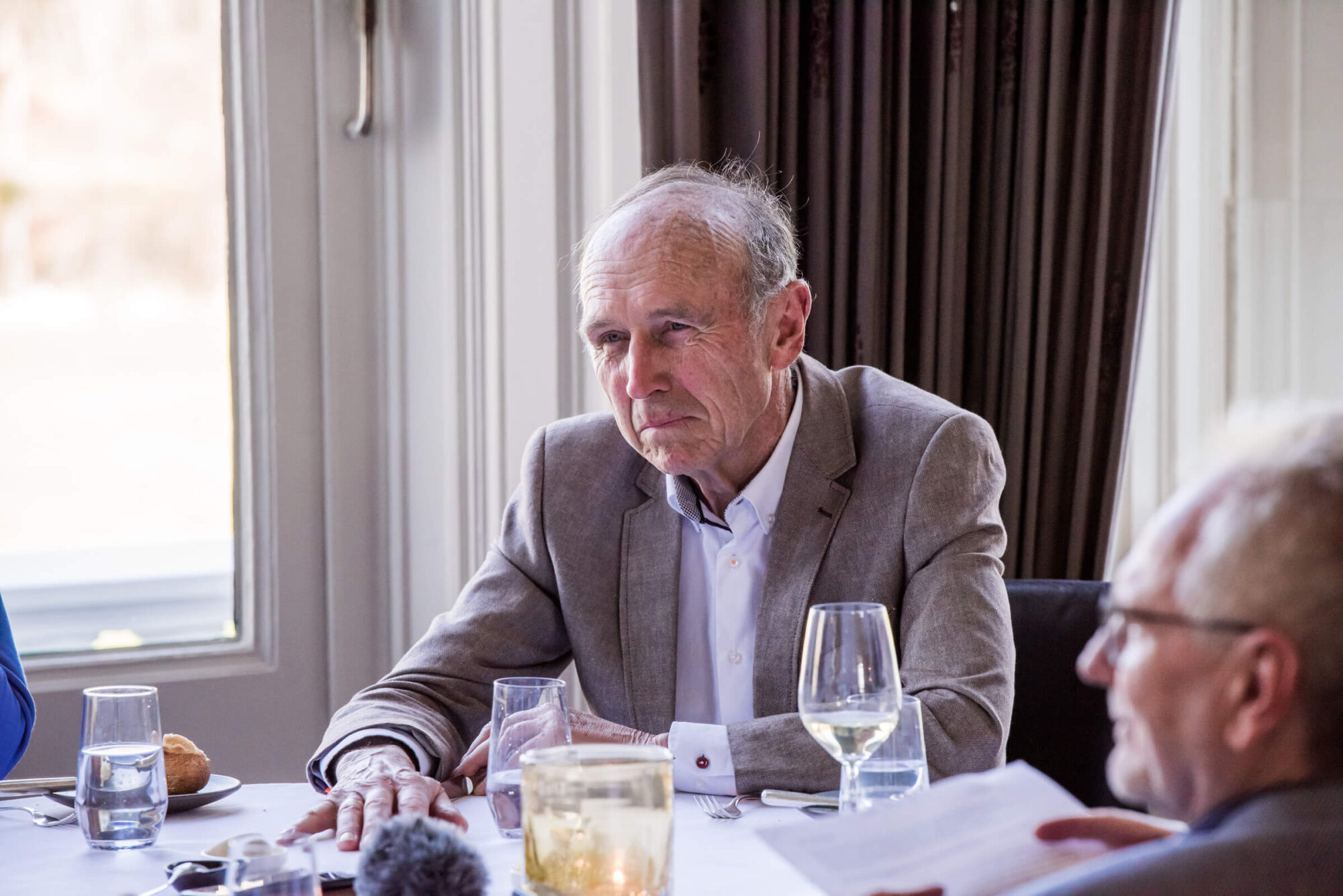An annoyance of Siem Jansen: the misunderstanding of the NOM after all these years. ''I have talked to the provinces about it on occasion: use the NOM for your information, because the only clubs that is deep in the capillaries of SMEs - contrary to what is sometimes claimed - is the NOM,'' says Jansen.
NOM talks to entrepreneurs, talks to directors, talks to owners, and from those conversations information is extracted that is translated to stakeholders. Jansen: ,,And that is hardly ever used. It's what we know and do. We suck up all that information. We have often enough said to the provinces: if you want something different, that is your choice and your right, but listen to what we have to report. We report it because we know what is going on and not because we consider ourselves so important.''
NOM is perhaps the sharing platform of Northern Netherlands business activity. Knowledge, money, network - it's there. Geopolitical developments are followed, but also those in the field of business and innovation. Arie van der Hek: ,,You look for opportunities. And you do a risk analysis because developments are difficult to predict. Fortunately, I have experienced an economic upturn.
Grants at the time went to large corporations
There were no contacts with universities at all, Van der Hek argues. There were subsidies for innovative projects through knowledge institutions but they usually went to the big corporations, because they could bring in their own money. SMEs were completely left out. Van der Hek: ,,It was also much more interesting for universities to consult with Shell or Philips than with Pietje Puk from around the corner; moreover, they communicated more easily.''
Knowledge institutions today are much more focused on their contribution to social and economic developments in the region, Jansen notes. Language is still a real problem.
A professor like Jan Post was innovation manager at Philips Drachten and understands the language of the larger companies. Jansen: ,,The language of the smaller entrepreneur does not match the language of the university or HBO. However, hard work is being done to improve that.''

NOM assists startups during pandemic
Different times, different problems. Take Covid. Dina Boonstra had just been employed for six months when the pandemic broke out. A company that couldn't do anything anymore went to a vacation park with families for three weeks and is now running like crazy with online events, she knows. ''There were many startups that did not yet have a relationship with the bank and needed to be helped quickly,'' Boonstra says.
A new kind of bridge loan came along. ''Some of those companies have now become crucial and will still exist in 10 years.''
Now there is the energy transition. Frits Migchelbrink, former director of energy at the Ministry of Economic Affairs, hooks up immediately: ''Should NOM have a task to make that transition not so expensive? By not putting gas in such a weird damn corner? All of Europe is switching to gas and we're doing away with it. I'm annoyed to my hair roots about this stupid thing.''
Thinking about costs of eliminating gas
The transition has to happen, Migchelbrink agrees. But doing it all at once will make it extremely expensive. The gas doesn't have to come from Groningen, because "LNG terminals enough. ''Once and for all, gas has gained value,'' he says. ''It is even equal in value to oil. And what do we do with it? Get rid of it! Why not say as NOM: we embrace the transition, but can we take a moment to think about the social cost of what we are doing?''
The energy issue is in fact the climate problem, Arie van der Hek believes. He points to the power plants in the Eemshaven, where foreign parties burn gas and coal to produce energy for the process industry in particular. ''You have to intervene in that chain to achieve an effective energy transition,'' Van der Hek believes. ,,What could be the role of the NOM in that case.''
Asking ourselves if we have thought things through.
Frits Migchelbrink
Not a role, Migchelbrink believes. NOM's role, he says, is to bring smaller companies to large companies, exchange knowledge and ensure that the universities' knowledge lands with the companies. Migchelbrink: ,,I just wonder if there might not be another task. A task that involves asking whether we have thought things through properly.'' Developments in hydrogen are of great importance. Siem Jansen thinks NOM should then look for breakthrough technologies.
The conversion of wind energy to hydrogen and back to energy is inefficient, but solar panels also have some inefficiency. ''A development company, not just in its own region, should get together with a few nerds to work on that,'' Jansen suggests. ''As you get better at solving those problems, you get further.''
Linking leaders to smaller parties
Dina Boonstra insists on broad developments, especially now that the U.S. and China are investing in themes where Europe is lagging behind. Artificial intelligence (AI) is one such theme, she believes. The Northern Netherlands plays a role in it. There are 200 to 250 companies thinking about this aspect in their sector in working groups.
''This is a type of activity that NOM has been driving more often in the last 10 to 15 years,'' Boonstra argues. Among other things, she mentions the Region of Smart Factories and Smart Industry Hub. ''You then link the frontrunner in our area - in this case Philips - with another ten parties or more.
We then organize all kinds of things to connect the smaller businesses. Courses, excursions, you name it. That's how it's going with AI now. Energy, health, maritime, they are thinking about how they can be helped with AI.''
This article is part of a series of articles following a meeting between former NOM directors and current director Dina Boonstra. They look back on 50 years of NOM and philosophize about the future.
